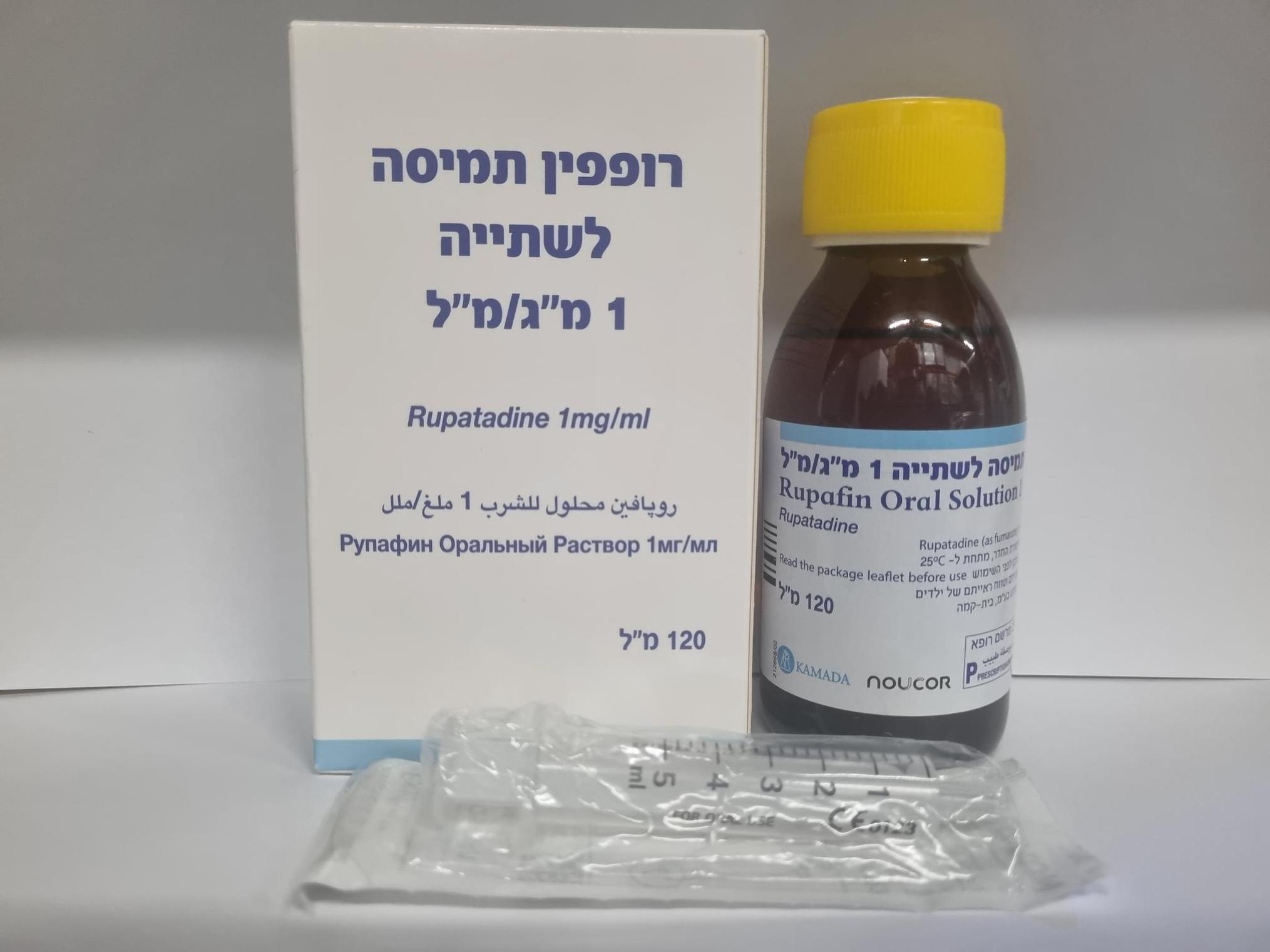Quest for the right Drug

רופפין תמיסה לשתייה 1 מ"ג/מ"ל RUPAFIN ORAL SOLUTION 1 MG/ML (RUPATADINE AS FUMARATE)
תרופה במרשם
תרופה בסל
נרקוטיקה
ציטוטוקסיקה
צורת מתן:
פומי : PER OS
צורת מינון:
תמיסה : SOLUTION
עלון לרופא
מינוניםPosology התוויות
Indications תופעות לוואי
Adverse reactions התוויות נגד
Contraindications אינטראקציות
Interactions מינון יתר
Overdose הריון/הנקה
Pregnancy & Lactation אוכלוסיות מיוחדות
Special populations תכונות פרמקולוגיות
Pharmacological properties מידע רוקחי
Pharmaceutical particulars אזהרת שימוש
Special Warning עלון לרופא
Physicians Leaflet
Special Warning : אזהרת שימוש
4.4 Special warnings and precautions for use Safety of rupatadine oral solution in children aged less than 2 years has not been established. The combination of rupatadine with potent CYP3A4 inhibitors should be avoided and with moderate CYP3A4 inhibitors should be administered with caution (see section 4.5). Dose adjustment of sensitive CYP3A4 substrates (e.g. simvastatin, lovastatin) and CYP3A4 substrates with a narrow therapeutic index (e.g. cyclosporin, tacrolimus, sirolimus, everolimus, cisapride) could be required as rupatadine may increase plasma concentrations of these drugs (see section 4.5). The administration of rupatadine with grapefruit juice is not recommended (see section 4.5). Cardiac safety of rupatadine 10 mg tablets was assessed in a Thorough QT/QTc study in adults. Rupatadine up to 10 times therapeutic dose did not produce any effect on the ECG and hence raises no cardiac safety concerns. However, rupatadine should be used with caution in patients with known prolongation of the QT interval, patients with uncorrected hypokalemia, patients with ongoing proarrhythmic conditions, such as clinically significant bradycardia, acute myocardial ischemia. Increases of blood creatine phosphokinase, alanine aminotransferase and aspartate aminotransferase, as well as abnormalities of liver function tests are uncommon adverse reaction reported with rupatadine 10 mg tablets in adults. This medicinal product contains sucrose, so it may be harmful to the teeth. Patients with rare hereditary problems of fructose intolerance, glucose/galactose malabsorption or sucrase- isomaltase insufficiency should not take this medicine. This medicinal product contains methyl parahydroxybenzoate, may cause allergic reactions (possibly delayed). This medicine contains 200 mg propylene glycol in each ml. Co-administration with any substrate for alcohol dehydrogenase such as ethanol may induce adverse effects in children less than 5 years old. While propylene glycol has not been shown to cause reproductive or developmental toxicity in animals or humans, it may reach the foetus and was found in milk. As a consequence, administration of propylene glycol to pregnant or lactating patients should be considered on a case by case basis. Medical monitoring is required in patients with impaired renal or hepatic functions because various adverse events attributed to propylene glycol have been reported such as renal dysfunction (acute tubular necrosis), acute renal failure and liver dysfunction. This medicine contains less than 1 mmol sodium (23 mg) per 1 ml, that is to say essentially ‘sodium free’.
Effects on Driving

שימוש לפי פנקס קופ''ח כללית 1994
לא צוין
תאריך הכללה מקורי בסל
לא צוין
הגבלות
לא צוין
מידע נוסף
